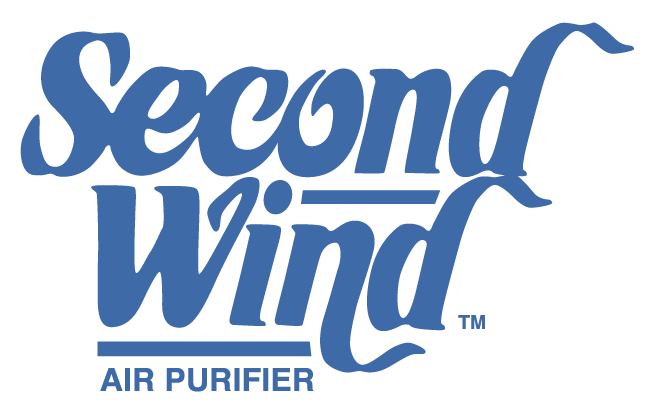Air Cleaner Help Topics
For Tech Support call (866) 476-5101. Be sure to have your model and serial numbers, along with the date of installation ready.
Technology
- How does an air cleaner work?
- What is my filter made of? What makes HEPA different from other filters?
- Does outdoor air quality affect indoor air quality?
- Why would I want to install an air cleaner?
- What causes indoor air pollution?
- Which air cleaner is best for me?
- What is "Event-Based" air cleaning? Do you offer it?
- What is a MERV rating?
- What is a micron, and why is it important?
- Does an air cleaner eliminate my need to dust?
Maintenance
- Why should I regularly change my air filter?
- How long will my filter last?
- Where can I purchase my replacement filter?
- Where is my air filter located?
- What kind of filter should I use? Which filter is best?
- Should I always use the highest-rated filter available?
- I'm hearing a "whistling" from my air cleaner. What should I do?
Miscellaneous
- What is an air handler?
- What are my air filter dimensions?
- What will my filter cost?
- Will I have cleaner air in my home by using a more efficient air filter?
- Why should I use a high efficiency air filter instead of a less expensive filter?
- How long is the warranty on an air cleaner?
- Will I save money using a more efficient filter?
- Are there other things I can do to better my indoor air quality besides changing my filter regularly?
Does outdoor air quality affect indoor air quality?
Yes. The outdoor environment plays a key role in what happens inside. Do you live near a dirt road, an airport, a busy highway or factory? Do you frequently spray chemicals that kill weeds or bugs; or use lawn fertilizer? Are there trees, shrubs and flowers producing a high pollen count near your house in the spring? All these sources emit particulates and / or gasses that can easily find their way inside your home each time you enter or leave, and cause adverse effects to your health.
Do you already have an air cleaner? Be sure to change your filter at the recommended frequencies; more often if your outdoor air environment includes any of the above described.
Why would I want to install an air cleaner?
Studies by the EPA (Environmental Protection Agency) and other organizations have found that people spend as much as 90% of their time indoors. Today’s building construction practices means our homes and other buildings in which we spend time are more airtight and energy efficient than ever. As a result, we trap potentially irritating and harmful substances such as chemicals, odors, pollen, smoke, bacteria, mold spores, animal dander and numerous other irritants inside our homes. Various studies indicate poor indoor air quality has been linked to chronic diseases such as diabetes, asthma, allergies, cancer, Alzheimer’s disease, heart disease, high blood pressure, weight gain, internal organ damage and respiratory infections. Since studies of indoor air have found that air inside the home can be as much as 100 times more polluted than outdoor air, indoor air quality should be a concern for everyone. Young children and the elderly are most susceptible to poor indoor air quality.
You should first consider a variety of factors when selecting the air cleaner that best suits your needs, such as:
- Current Health (Do you or another family member have asthma? allergies? other chronic health issues, as previously mentioned? Are your eyes, throat, nose irritated? Do you often have headaches? Do you feel dizzy or tired? Have you noticed changes in your health after remodeling, renovating or moving?)
- Environment (Is it windy? Is there a great deal of air pollution or dust in the air? Are there flowering trees nearby? Are pesticides, insecticides and fertilizers regularly used? )
- Occupation (Do you work with chemicals? Do you work in a particularly dirty/dusty environment? Do you work near fires?)
- Lifestyle (Does someone in the house smoke? Do you have hobbies that involve chemicals? Paint? Sanders? Welders? Do you use / store a variety of cleaning solvents in your home?)
- Housing (Do I live in a house where I can install a whole-house system? Or do I live in an apartment and need to use a room model? Is my home well ventilated? Is it always stuffy or smelly? Do I find rodents or cockroaches often inside my home?)
- Where you live (Example: if you live in Florida, chances are insecticides / pesticides are regularly sprayed and come into your home via your shoes. Do you live near an airport where planes fly overhead? Do you live near a plant where chemicals are used? Do you live near a highway with substantial exhaust fumes?)
- Circumstances (Did you just install new carpet? Have you remodeled your home? Has your home suffered flood damage or other water damage? Do you have a fireplace or a gas-burning stove?)
- Budget (What can your budget afford?)
No matter the circumstance, every home should have a quality air cleaner. If your lifestyle includes any of the above described conditions, installing an air cleaner becomes even more important. Whole house air cleaners are best Vs room air cleaners, as room air cleaners don’t stop contaminants in the rest of the house from circulating everywhere.
Consider this:
- The average person takes 20,000 breaths per day. Each person inhales over 3,500 gallons of air each day. Children inhale more particles for their size than adolescents or adults.
- Polluted air causes 94% of all respiratory problems.
- More than 31 million Americans have been diagnosed with asthma, about 1/3 are children under 18.
- About 40,000 dust mites, a common household allergen, can live on one ounce of dust.
- An estimated 10-15% of the entire population may be allergic to cat or dog dander.
- A person sheds up to 700,000 skin flakes per day.
What causes indoor air pollution?
Indoor air pollution comes in 3 basic variations:
- Particulates (35%): Particulates include: pet dander, dust, dust mites, asbestos dust, pesticides, pollen, post-fire ash, spray mist from aerosol products and more.
- Gases (31%): Gases include: tobacco, paints, welding fumes, chemicals, varnishes, correction fluids, paint strippers, household cleaning products and more.
- Germs (34%): Germs, mold, bacteria and viruses breed in consistently moist and / or unclean environments. They’re introduced into your home with water damage or when people enter your home.
There are many sources of indoor air pollution in any home. These include combustion sources such as oil, gas, kerosene, coal, wood, and tobacco products; building materials and furnishings as diverse as deteriorated, asbestos-containing insulation, carpet, cabinetry or furniture made of certain pressed wood products; products for household cleaning and maintenance, personal care, or hobbies; dust, dust mites; central heating and cooling systems and humidification devices; and outdoor sources such as radon, pesticides, and outdoor air pollution.
Some sources, such as building materials, furnishings, and household products like air fresheners, release pollutants more or less continuously. Other sources, related to activities carried out in the home, release pollutants intermittently. These include smoking, the use of unvented or malfunctioning stoves, furnaces, or space heaters, the use of solvents in cleaning and hobby activities, the use of paint strippers in redecorating activities, and the use of cleaning products and pesticides in house-keeping. High pollutant concentrations can remain in the air for long periods after some of these activities.
Which air cleaner is best for me?
GeneralAire® MAC, AC, HEPA and TERSus Air Cleaners are of the best in the industry. Hospitals use HEPA filters because they utilize the highest-efficiency filter with carbon to remove virtually all contaminants and particulates from indoor air (dust, pet dander, bacteria, mold spores, gasses, odors and more). TERSus air cleaners combine the efficiency of HEPA (eliminating particulates) with UV air purification (eliminates mold, bacteria, viruses and other bioaerosols). GeneralAire® MAC and AC Series air cleaners are standard with MERV 11 filters. Today’s whole house air cleaners, overall, substantially improve the quality of the air you breath in your home. Visit www.generalfilters.com to learn about GeneralAire® air cleaner options. Call toll free 866-476-5101 if you have questions.
What is "Event-Based" air cleaning? Do you offer it?
Normally air is cleaned by an HVAC-installed air cleaner while the HVAC system is on (actively heating or cooling the house) because it moves air through the air cleaner filtration system. The air is not being actively cleaned when the HVAC system is off because air is no longer being moved by the system through the air cleaner.
In "event-based" air cleaning, you can control your air cleaner to clean the air in your home even if the HVAC system is not heating or cooling. How do you do this? By simply turning the blower fan in your HVAC system on when the heating and cooling function is off. This keeps air flowing through your air cleaner at all times, whether heating, cooling or simply running the blower fan.
Why would you want to do this? Maybe the outdoor seasonal pollen has made its way inside and is causing an increase in allergy or asthma triggers. Maybe someone in your home has a chronic health concern that requires constant air cleaning. Maybe you are remodeling and demolition particles from drywall, wood, insulation and other sources are everywhere!
Companies may advertise "Event-Based" air cleaning as if it's new, special or unique technology. The fact is ALL whole house HVAC-installed air cleaners (including GeneralAire®) are capable of event-based cleaning; either manually (by simply turning your fan on at the control unit / thermostat) or automatically (with a programmable control unit / thermostat). If you wish to use a thermostat for automatic control, be sure it is one designed to program your heating, cooling and fan operations.
How does an air cleaner work?
The air cleaners we offer are installed with your HVAC system. When the furnace blower is on (actively heating or cooling the house) it moves air through the air cleaner and filter within. As the air passes through the filter, particulates, allergens and contaminates are trapped. The air leaving the air cleaner is free of particulates, allergens and other harmful contaminants. UV Purifiers (as found inside the TERSus Air Cleaner) utilize germicidal irradiation like the sun outdoors to eliminate mold, bacteria, germs and viruses from the air.
Does an air cleaner eliminate my need to dust?
Not completely. There will always be some dust that settles on furniture, as is it is too heavy to stay airborne and travel through your air cleaner. To ensure your air cleaner is providing the greatest benefit, you may wish to run the furnace blower continuously or more often to keep air circulating through the air cleaner. Be sure to change your air filter media as recommended; or in the case of an electronic air cleaner, clean it at the recommended intervals. Be sure to use authentic GeneralAire® replacement filter media.
How long is the warranty on an air cleaner?
The warranty on GeneralAire® residential air cleaners range from 5 to 10 years, depending on the model purchased.
What is my filter made of? What makes HEPA different from other filters?
Air cleaner filters are made of a variety of materials, including fiberglass, cotton, carbon, paper and even metal.
Carbon (often found in HEPA air cleaner filters) is used because it is very safe and effective in eliminating harmful gases, molecules, chemicals, fumes and odors from the air. HEPA filters are made out of very fine glass threads with a diameter of less than 1 micron (a micron is 0.00004 in, 0.001 mm). By comparison, a human hair has a diameter of about 75 microns (0.003 in, 0.07 mm). The fine glass threads are tangled together and compressed to form a filter mat. HEPA filters will collect particles down to 0.3 microns (0.00001 in, 0.0003 mm) in diameter. Because GeneralAire® HEPA Air Filtration Systems combine HEPA filters with carbon-based materials, they stop mold spores, bacteria, viruses, pet dander and dust, and also help to eliminate stubborn gasses and odors from your home. Thus, the air that leaves this type of air purifying system is cleansed and almost totally free from contaminants.
Why should I regularly change my air filter?
For several reasons:
- Dirty air filters represent the #1 cause of system breakdown. A dirty air filter restricts air flow into your HVAC system's air handler, placing additional strain on the air handler fan motor. Over time it can burn out the motor, cause your system to overheat, and ultimately fail. Filter replacement is essential to extending the life of one of the biggest financial investments in your home.
- A dirty air filter consumes more energy, by making your fan motor work harder. One of the easiest and quickest ways to reduce your energy bill is to replace your air filter.
- A dirty air filter reduces the air quality in your home, aggravating allergies and asthma (particularly in children and the elderly). Change your filter regularly to protect your family’s health.
- A dirty air filter makes the rest of your heating and air-conditioning systems and ducts get dirty faster. This leads to costly air duct cleaning expenses or the need to replace your unit(s) sooner than you expected.
Electronic air cleaners do not require filter media replacement, but instead require cleaning of the cells in inside the unit. Clean every 3 months to keep these units running smoothly.
What will my filter cost?
To find the cost of your air filter, click here.
Where can I purchase my replacement filter?
Check for a local dealer in your area, or purchase online by clicking here. Simply find and click on your model to find and purchase the filter. You may also call toll FREE at 866-476-5101 to order over the phone.
Where is my air filter located?
Your air filter can be located in the following places:
- Next to your furnace or air conditioning system air handler
- In a ceiling or wall-mounted air grille
- In your attic
- In more than one of the above locations
The air filter is typically located at the point where the return duct enters the air handler. Look for a 1” wide hinged or removable cover. The air filter will be inside.
Some air handlers are installed in attics. The filter is accessed by removing the grate covering the return duct. If located in your wall or ceiling, simply access the filter by opening or removing the grill cover.
Many houses have more than one HVAC system, each typically with at least one air filter. Therefore your house may have air filters located at the air handler and in the returns. Check each possible location to ensure you have located all of your air filters.
What is an air handler?
The air handler is the large box containing the fan and fan motor. The air handler pulls air in from the house through the “return” duct system, and then blows the air through the heating or cooling system and back into the house through the duct system.
What are my air filter dimensions?
Most filters list the dimensions on the filter frame so that you can select the appropriate size replacement filter.
What kind of filter should I use? Which filter is best?
Generally the higher the MERV rating the better job it does at cleaning your indoor air. HEPA air cleaners and filters are considered the best in the market.
Overall: use an air filter that offers the highest level of efficiency without damaging your HVAC system. Air filter efficiency is the measurement of how well the filter removes particulates from the air before it enters the air handler; known as a MERV rating. A MERV-rated air filter “cleans” the air by serving as a physical barrier to particles hanging in the air. A pleated air filter provides greater surface area to trap particles than a flat panel filter and will thus capture more particles. Generally the higher the MERV rating the better job it does at cleaning your indoor air. HEPA air cleaners and filters are considered the best in the market.
If you purchased your air cleaner from GeneralAire® you should use the same filter for replacement that came with your system.
You don’t have a GeneralAire® brand air cleaner? We also offer filters that fit other manufacturer’s systems. Go to Shop / Air Cleaner Filter Media to find a replacement filter media that fits your needs.
What is a MERV rating?
MERV stands for Minimum Efficiency Rating Value. Standard 52.2 was developed by ASHRAE (American Society of Heating Refrigerating and Air Conditioning) in the late 1980's to determine the overall efficiency of media air filters. The rating system tells you how efficient a filter is at removing particulates from your indoor air. Represented by a numerical value ranging from 1 (lowest efficiency rating) to 20 (highest efficiency rating), it is used to rate the ability of a filter to remove dust from the air as it passes through the filter.
These ratings are determined by adding particles of varying sizes, from 0.3 microns to 10 microns, into a controlled testing environment. The particles are added upstream of the test filter, and a laser particle counter samples the air before it enters the filter and again after it leaves the filter. The two particle counts are compared to calculate the Particle Size Efficiency of the tested filter. Once this is determined, a MERV Parameters chart is used to determine the filters MERV rating.
GeneralAire® air cleaners carry a MERV rating from 8 to 13 and HEPA Air Cleaners (considered MERV 17 to 20), which removes 99.97% of all particulates as small as 0.3 microns from the air.

Should I always use the highest-rated filter available?
It depends on a couple factors. While a higher MERV rated filter removes more and smaller particulates, sometimes using the highest MERV filter is not the right answer. This is because as filter efficiency increases, there is a corresponding increase in the level of air flow resistance. A highly-efficient filter may restrict air flow to a level that will damage your HVAC system by placing additional strain on the fan motor.
Second, does someone in your home suffer from allergies or asthma? Do you have children or an elderly person living in your home. Each of these groups are more susceptible to the adverse health effects associated with poor indoor air quality, therefore, you may want to ensure you install the best in indoor air filtration.
Regardless, you should use a filter rating that best corresponds to the requirement of your HVAC system (and health concerns), and yet provides maximum air cleaning benefit. When in doubt contact your local HVAC maintenance company.
Will I have cleaner air in my home by using a more efficient air filter?
Yes. A more efficient air filter is designed to do a better job of cleaning the air as it enters your HVAC system, and ultimately into your home.
Why should I use a high efficiency air filter instead of a less expensive filter?
The few extra dollars spent on a high efficiency air filter actually saves you money overall! By investing in the high efficiency air filter you can ensure that your HVAC system is as clean as possible, the air in your home is effectively filtered and your system runs smoothly!
Will I save money using a more efficient filter?
Very likely. Experts have estimated that the average cost savings derived from using a high efficiency filter is approximately 10%. This cost savings includes the reduction in fuel consumed by your HVAC system, and reduced repair and maintenance costs. This does not include the cost of system replacement resulting from failure to replace your filter.
How long will my filter last?
Generally, you should change your MERV-rated filter a minimum of once per year; however, you may wish to change it more often. Lifestyle and circumstance can vastly change the frequency of your filter replacement. For instance, if you have pets, live near a busy highway, smoke, or if you live in a location that has more dust, pollen or similar air particles, you may need to change your filter more frequently. Are you remodeling your home? You might change the air filter more often until your remodeling is complete and the dust has settled. Do you use chemicals in your hobbies? We recommend checking your filter monthly just to be sure.
Are there other things I can do to better my indoor air quality besides changing my filter regularly?
Yes. Upgrading older HVAC units to high-efficiency units, replacing dated home insulation with today’s higher-quality home insulation, and upgrading or repairing old windows all help to make your home more efficient and green. Ventilate often. Clean often. Discourage smoking indoors. Vacuum carpet often, especially if your carpet is new. Remove shoes upon entering your home. Ensure exhaust fans in bathrooms and kitchens work efficiently. Control humidity levels, as higher humidity levels increase presence biological contaminants. Immediately clean, disinfect and dry water damaged areas. Ensure fireplace flumes work correctly. Store chemicals in your garage or a well-ventilated area out of reach of pets and children. Store as few as possible. Keep pets well groomed. Empty your cat’s littler boxes daily.
What is a micron, and why is it important?
A micron is a metric measurement used to analyze very small particles. One micron is equal to 1/25,400 of an inch or one millionth of a meter. Any particle 5 microns or smaller can pass through the human lung.
Of particular importance when discussing indoor air quality solutions is how effective a product is at capturing / controlling contaminants 2.5 microns or less in size. Any particles less than 2.5 microns are classified as a Respirable Suspended Particle (RSP) and the health hazards with these small particles is great. RSP’s are particles that are small enough to evade mucosal capture by the protective cilia and mucosa of the human upper respiratory system and invade the deeper reaches of the lungs with serious health consequences. In fact, any particles of five microns or less are considered a definite inhalation hazard because of the inability of the human body to filter effectively these particles from the lungs.
Allergenic particles, infectious agents and toxic gases can cause allergic reactions, headaches, sickness and many other illnesses. Since 98% of airborne contaminants are less than one (1) micron in size, knowing the effectiveness of any product at controlling submicron particles is very important when making a decision on an air purification system for your home.
I'm hearing a "whistling" from my air cleaner. What should I do?
To prevent whistling caused by air escaping from installation seams, it is recommended to apply high temperature silicone caulk or foil tape between the air cleaner and plenum.








